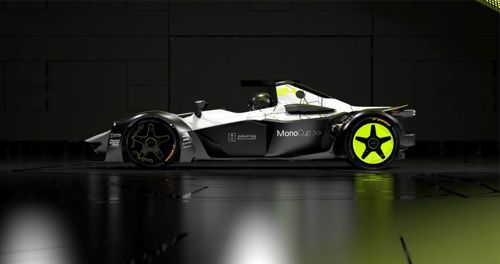Liverpool-based Briggs Automotive Company (BAC) is making its first foray into motorsports with the launch of the Mono Cup, which starts this winter and continues into the new year.
Neill Briggs, BAC co-founder and director of product development, explained that in essence, each round will consist of two heats and a final.
“What that means is, wherever you started in the first heat will be reversed for the second heat, and then your two aggregate results will give you your starting position...for the final.
“It will breed lots of excitement, and lots of action, [it’s] essentially two sprint races with a slightly longer final.”
Race car
Briggs added the cup car’s engine is the result of iterations of the Mono’s 315hp and Mono R’s 343hp engines, resulting in the torque and power required for racing.
Other adaptations include a smaller airbox to help reduce drag and a new all carbon centre fixing wheel, front and rear, that is similar in appearance and principle to wheels on F1 cars.

“There's a weight benefit to those wheels, which obviously helped to produce the performance that we've got,” said Briggs. “There are other systems that you would find on GT 3 race cars, which will help the driver depending on the level of intervention that he would he or she would require.”
Briggs continued: “In terms of the performance, our car fits neatly in between GT racing and other single make championships like Lamborghini Trofeo and Ferrari Challenge, and Formula racing.”
Further modifications include an additional oil cooler to help the cup car deal with the Middle Eastern heat, electrical cut offs to isolate the car from outside, and fully enclosed wheels.
Spectacle
Described as ‘a carefully curated racing spectacle finessed for the Middle East', the Mono Cup will operate on an ‘arrive-and-drive’ basis, with competitors expected to hold an International C Race License.
The cup car set up, management and logistics will be taken care of by BAC Motorsport and its partners.
“The whole series is managed for the driver,” said Briggs. “It's not individual teams that need to commit to the series first and then take drivers on. The series itself will be run by one team which will operate all 24 cars on a fair play, even basis. The idea there is to ensure neutrality of equipment, to make sure it's a level playing field for everybody.”








Guest blog: exploring opportunities for hydrogen combustion engines
"We wouldn't need to pillage the environment for the rare metals for batteries, magnets, or catalisers". Batteries don't use rare...